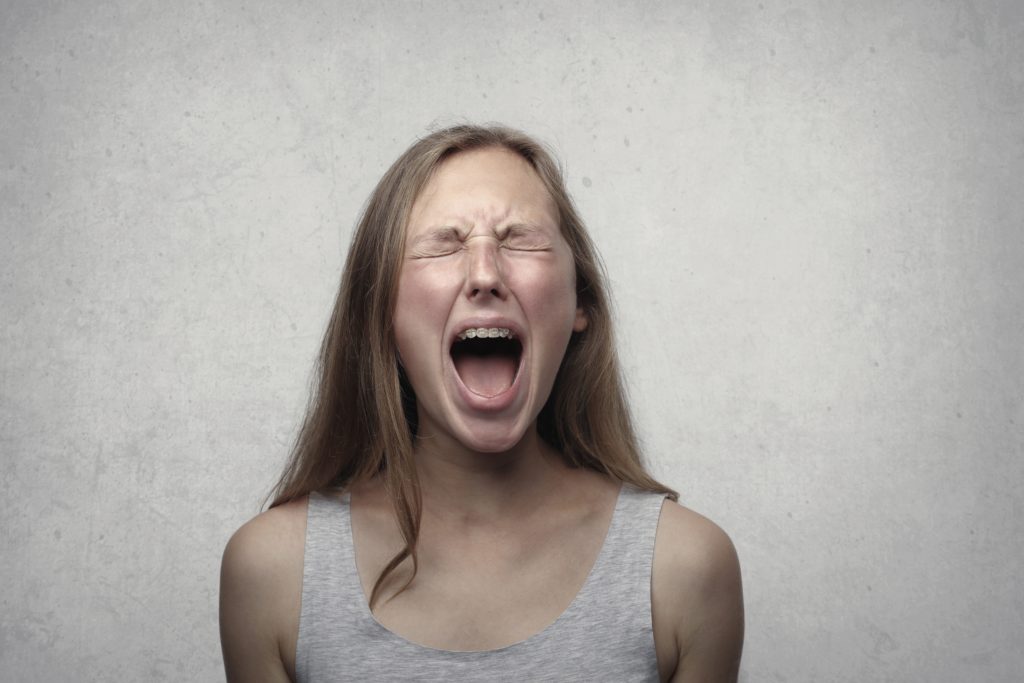
In the United States, it may seem like drinking and doing drugs is a teenage rite of passage. Yet, the fact is that drinking and doing drugs at a young age is dangerous for teens and for those around them. The unfortunate truth is that up to an estimated 8% of American adolescents meet the criteria for a substance use disorder, according to PubMed. Fortunately, teen addiction treatment can reverse the damage done by drugs and alcohol.
While teen addiction treatment can reverse the worst of drug abuse, the sad reality is that substance abuse is one of the leading causes of adolescent mortality and morbidity in the United States. Parents should be aware of the dangers of teen drug and alcohol abuse as well as what resources are out there to prevent it. Substance use disorders are treatable, no matter what age a person is.
What Does Teen Addiction Treatment Look Like?
Teenagers interact with drugs differently than adults might. For this reason, facilities that specialize in teen addiction treatment will have an approach geared toward their age group. Some of the teen addiction treatments available may include the following:
Therapy
Therapy is a crucial part of addiction treatment for adolescents. While family therapy can benefit people of all ages, it’s especially useful for teenagers struggling with substance use disorders.
Through family therapy, family members of teens can see how they might be enabling the teens’ self-destructive behaviors. Additionally, young adults often don’t understand the damage their actions have on their family members. Family therapy can help with this as well.
Other forms of therapy can complement family therapy. Holistic therapy is beneficial for young adults because it shows them natural ways to socialize and have fun without drugs. Holistic therapy may include nutrition, fitness, adventure, art, and music. Each form of holistic therapy can help a teenager heal physically, mentally, and spiritually.
Outpatient Treatment
School is a crucial part of most teens’ lives. Although recovery should be the most important part of a young adult’s life if they suffer from a substance use disorder, they may have other responsibilities they must fulfill. Outpatient care gives teenagers an opportunity to go to school all while getting help that can change their lives.
There are different levels of outpatient care. These include partial hospitalization programs (PHPs), intensive outpatient programs (IOPs), and standard outpatient program treatment. PHPs require the most amount of time, so they may not be appropriate for adolescents that must attend school at certain hours (although night school can be an option).
IOPs offer a more flexible approach, as they require less of a time commitment. General outpatient programs can allow teens to attend school as usual but are only effective after a more intense form of treatment.
Inpatient Treatment
At the end of the day, recovering from a substance use disorder is arguably more important than attending school. Thus, for teens with severe substance addictions that are willing to attend night-school or some special online or homeschooling program so that they can focus on their addiction treatment, inpatient treatment is available.
Inpatient treatment programs require teen patients to live at the rehab facility that they’re receiving care at. Note that standard inpatient care is more rigid than residential inpatient care.
Parents concerned about their teen keeping up with school while attending rehab should know that many high schools consider recovery to be of utmost importance. It’s possible for adolescents to take time off of school and make up missed classes during the summer or at a later date. It’s better for a young adult to make up for school later than struggle with a substance use disorder.
Medical Detox
Teenagers struggling with severe substance use disorders may experience intense withdrawal symptoms when they try to stop using drugs and alcohol. Withdrawal symptoms can range from the development of mental illnesses to seizures, to bodily aches and pains, and more. Medical detox will help teens in treatment for substance use disorders manage their withdrawal symptoms.
Medical detox is the process of ridding the body of all toxic substances with the professional supervision and guidance of physicians and a medical staff. If a teenage patient suffers from severe withdrawal symptoms during medical detox, doctors will prescribe the teen withdrawal medication.
What is the Number One Drug Used by Teens?

Data shows that teens abuse a wide range of drugs and alcohol. So, what is the number one teen drug? The answer is alcohol.
According to the National Institute on Drug Abuse (NIDA), as of 2020, many teenagers in high school and middle school have drunk alcohol while underage. NIDA data shows that 61.5% of 12th-graders have tried alcohol at least once in their life. Also, an estimated 46.4% of 10th-graders have drunk alcohol during their life. More alarmingly, a quarter of 8th-graders have drunk alcohol at some point.
The Centers for Disease Control and Prevention (CDC) found that 12th-graders have an even larger number of underage drinkers in comparison to NIDA. The CDC writes that about 67% of all high schoolers in grade 12 have consumed alcohol at least once in their lives. Regardless of the source, these estimates clearly answer the question, what is the number one teen drug?
What Drugs Do Teens Abuse the Most?
Marijuana, tobacco, and prescription medications are the most commonly used drugs by teens after alcohol. A survey from NIDA found that 36% of high schoolers surveyed were using marijuana.
Tobacco is also one of the most commonly used drugs by teenagers. The CDC writes that around 40% of high schoolers have tried cigarettes at some point.
Prescription medications are also commonly abused by teenagers. The CDC found that almost 20% of 12th graders admitted to using prescription medication illegally.
Adderall is a commonly misused prescription medication, which is used to help individuals with attention-deficit/hyperactivity disorder focus. The NIDA found that almost 9% of high school seniors abused Adderall at some point.
Why Do Teens Use Drugs and Alcohol?
Every person uses drugs and alcohol for different reasons. That said, the Partnership to End Addiction writes that there are patterns as to why teens feel the need to use drugs and alcohol. One reason is that they might want to fit in with their peers who consume drugs and alcohol. Parents can combat this by talking to their children about how good friends shouldn’t pressure them into activities they don’t enjoy.
Teens feel awkward about socializing, so they may do drugs and alcohol to overcome these kinds of insecurities. Additionally, the need to fit in can cause drama and emotional pain as a result. Therefore, teens may use drugs and alcohol to try to cope with their emotional pain.
What Percent of Alcohol is Consumed by Minors?
The CDC writes that approximately 10% of all alcohol is consumed by underage Americans. This shouldn’t come as a surprise as alcohol is one of the most consumed drugs for teens.
What’s more, the National Survey on Drug Use and Health from 2019 shows that about 4.2 million teens admitted to binge drinking. Binge drinking is typically defined as five or more drinks in one sitting, though it varies per age and gender.
Why Is It Important to Seek Out Teen Addiction Treatment?
There are many dangers associated with using drugs and alcohol at an early age. However, one of the biggest dangers is the fact that evidence shows that the earlier people start abusing drugs and alcohol, the greater chance that they will develop a substance use disorder later on in life. Having access to addiction treatment as a teen is crucial to ensuring that the rate of teens in need of substance use disorder treatment decreases.
Other dangers of using substances at a young age include stunted brain development, insomnia, heart disease, and high blood pressure. Besides, the onslaught of health problems a teen can develop if his or her substance use disorder is left untreated can put the teen through dangerous situations.
When people use drugs and alcohol, they’re more likely to engage in risky behaviors such as risky sex and intoxicated driving. Young adults who abuse substances may get seriously hurt as a result.
Can Teenagers Go to Jail for Abusing Drugs and Alcohol?
In most cases, teenagers won’t go to jail for abusing drugs and alcohol. Yet, they will likely get arrested and tried in juvenile court. If a teen is found guilty, he or she will go to a youth detention center, which is similar to a prison. Plus, there are legal repercussions even if a teen is caught drinking or doing drugs. There is a large possibility they will end up with a suspended license and a large fine.
Ultimately, drugs and alcohol can lead to hurting others. If a teen is involved in a car accident while intoxicated, that teen may be tried as an adult. Thus, parents should seek out addiction treatment for teens rather than wait for them to get into legal trouble.
Teen Addiction Treatment in West Virginia
Harmony Ridge Recovery Center understands that addiction doesn’t discriminate. That’s why we at Harmony Ridge Recovery Center offer a treatment program specifically for young adults. To find out more about our various programs, contact us now.
Resources:
- https://www.ncbi.nlm.nih.gov/pmc/articles/PMC3276711/
- https://teens.drugabuse.gov/how-many-teens-drink-alcohol
- https://www.cdc.gov/healthyyouth/factsheets/substance_use_fact_sheet-detailed.htm
- https://drugfree.org/article/is-substance-use-normal-teen-behavior/
- https://portal.ct.gov/OCPD/Juvenile/Juvenile/Juvenile-Frequently-Asked-Questions



